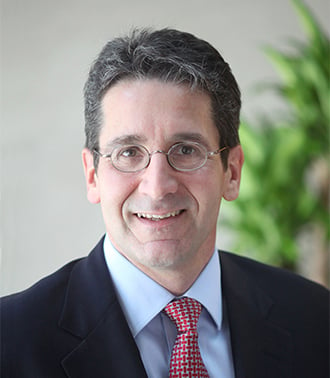CPSC: Trump Nominates Next Commissioner To Fill Vacancy Left by Dziak
On October 2, 2025, the U.S. Senate received a nomination from President Donald Trump for William “Billy” Hewes, III, to serve as a Commissioner of the U.S. Consumer Product Safety Commission (CPSC or the Commission). The Senate’s executive clerk referred the nomination to the Senate’s Committee on Commerce, Science, and Transportation (Senate Commerce) the same day. President Trump nominated Hewes for a term expiring October 26, 2031.
CPSC Structure
By statute, the CPSC can have up to five commissioners, who are appointed by the president, subject to the advice and consent of the Senate, to serve seven-year terms.1 No more than three commissioners may be of the same political party.2 One of the CPSC commissioners is selected by the president, subject to the advice and consent of the Senate, to be the Commission’s Chairman.3 The Chairman is empowered with the executive and administrative responsibilities of the CPSC, which include hiring personnel, expending appropriations, and delegating duties among the other commissioners and CPSC staff.4
In May 2025, President Trump fired CPSC’s three Democratic Commissioners, leaving the two Republican Commissioners, Acting Chairman Peter Feldman and Douglas Dziak, a former Feldman staffer. Then, on August 22, 2025, Dziak announced his resignation,5 leaving Acting Chairman Feldman as the sole commissioner. Before resigning, Dziak and Acting Chairman Feldman delegated virtually all Commission authority, including regulatory, civil and criminal enforcement, and adjudicatory enforcement authorities to the Chairman.
Commissioner Nominee William “Billy” Hewes, III
William Hewes has deep roots in the American south. Born in New Iberia, Louisiana, he soon moved to Gulfport, Mississippi, where he attended Harrison Central High School. Hewes attended the University of Southern Mississippi and began his political career in 1992 as a member of the Mississippi State Senate (he represented the 49th district, which contains Harrison County, Mississippi). Hewes remained in the Mississippi State Senate until 2012, serving as President Pro Tempore from 2008. Following his time in the state senate, Hewes was the Mayor of Gulfport, Mississippi from 2013 to June 2025. According to his LinkedIn profile, Hewes has been self-employed as a real estate broker and insurance agent for over 40 years. He has also served as an Advisory Board member for the U.S. National Park Service and FirstNet Board Member for the U.S. Department of Commerce.
We expect to learn more about Hewes, his approach to product safety, and his thoughts on the path forward for CPSC during his upcoming confirmation hearings (which have yet to be scheduled).
Broader Implications
What — if anything — Hewes’ nomination may signal about administration priorities more generally is unclear. As we have written previously (see our April 2025 and June 2025 Blogs), the Trump administration has put forth the idea of eliminating the CPSC and folding its functions into the U.S. Department of Health and Human Services (DHHS). This change would require legislation. As of this writing, no legislation has been introduced in Congress that would effectuate the transfer of CPSC’s functions to DHHS, and the appropriations bill that would set CPSC’s funding for Fiscal Year 2026 continues to refer to CPSC by name. It is unclear whether nominating Hewes to join the Commission signals a shift away from a potential transfer of CPSC functions or if his nomination is somehow part of the strategy.
For questions about CPSC policy or about compliance with the CPSA, including timely reporting and recalls under Section 15(b) of the CPSA, or with other product safety matters, please reach out to the authors of this Blog or any of their colleagues on Arnold & Porter’s Consumer Product Safety team.
© Arnold & Porter Kaye Scholer LLP 2025 All Rights Reserved. This Blog post is intended to be a general summary of the law and does not constitute legal advice. You should consult with counsel to determine applicable legal requirements in a specific fact situation.
-
15 U.S.C. § 2053(a)-(b). These terms run from fixed calendar years, not from the time a commissioner takes office. Id. § 2053(b). In this instance, if Hewes is confirmed, the new commissioner’s term will have started running in October of 2024, nearly a year before he was even nominated.
-
-
-
-
Commissioners’ terms run seven years from fixed calendar dates, as noted above, unless they are re-nominated. However, a commissioner can “hold over” in their office for up to a year if no replacement is confirmed in that time.




